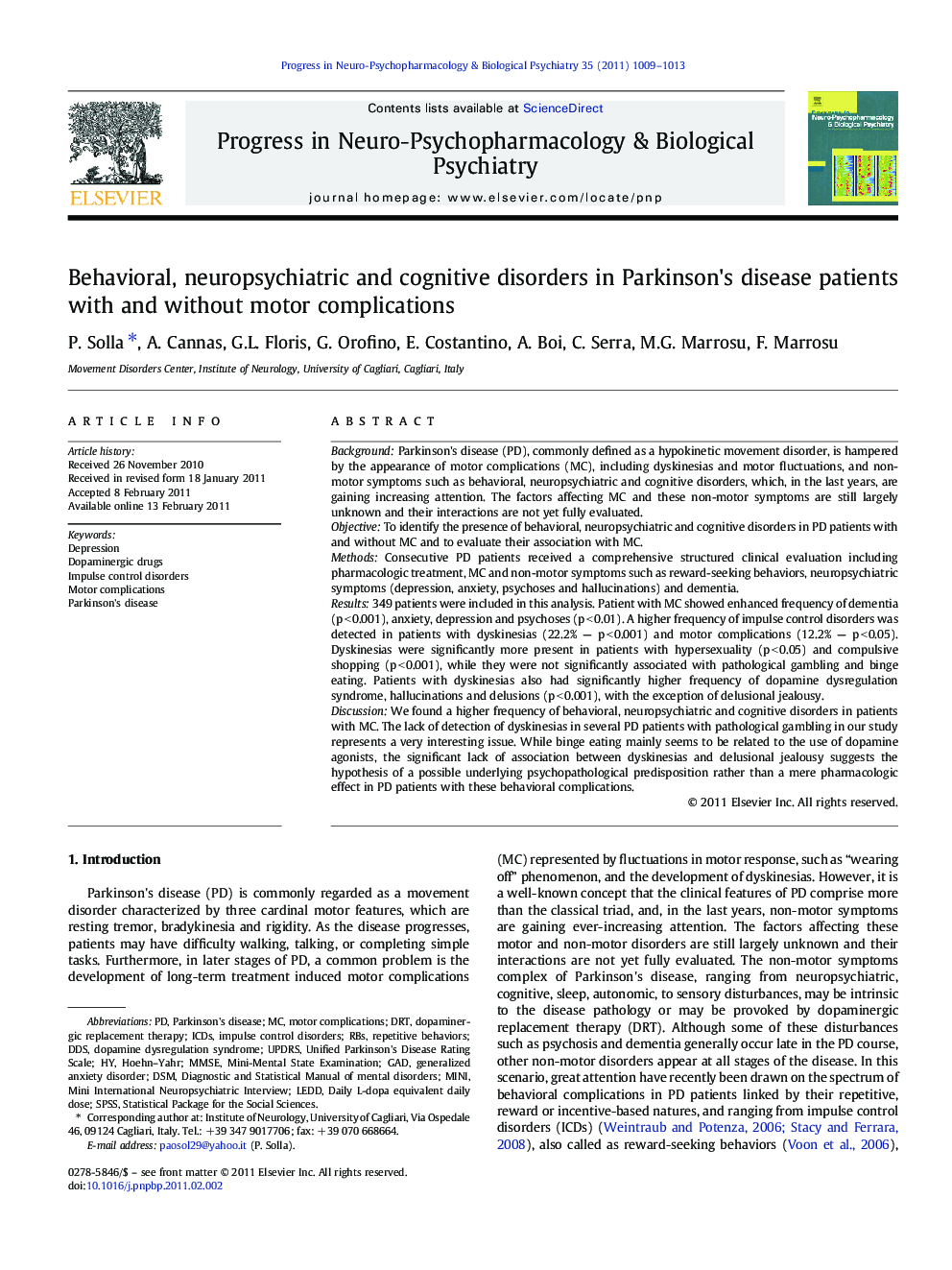| کد مقاله | کد نشریه | سال انتشار | مقاله انگلیسی | نسخه تمام متن |
|---|---|---|---|---|
| 2565239 | 1128053 | 2011 | 5 صفحه PDF | دانلود رایگان |

BackgroundParkinson's disease (PD), commonly defined as a hypokinetic movement disorder, is hampered by the appearance of motor complications (MC), including dyskinesias and motor fluctuations, and non-motor symptoms such as behavioral, neuropsychiatric and cognitive disorders, which, in the last years, are gaining increasing attention. The factors affecting MC and these non-motor symptoms are still largely unknown and their interactions are not yet fully evaluated.ObjectiveTo identify the presence of behavioral, neuropsychiatric and cognitive disorders in PD patients with and without MC and to evaluate their association with MC.MethodsConsecutive PD patients received a comprehensive structured clinical evaluation including pharmacologic treatment, MC and non-motor symptoms such as reward-seeking behaviors, neuropsychiatric symptoms (depression, anxiety, psychoses and hallucinations) and dementia.Results349 patients were included in this analysis. Patient with MC showed enhanced frequency of dementia (p < 0.001), anxiety, depression and psychoses (p < 0.01). A higher frequency of impulse control disorders was detected in patients with dyskinesias (22.2% — p < 0.001) and motor complications (12.2% — p < 0.05). Dyskinesias were significantly more present in patients with hypersexuality (p < 0.05) and compulsive shopping (p < 0.001), while they were not significantly associated with pathological gambling and binge eating. Patients with dyskinesias also had significantly higher frequency of dopamine dysregulation syndrome, hallucinations and delusions (p < 0.001), with the exception of delusional jealousy.DiscussionWe found a higher frequency of behavioral, neuropsychiatric and cognitive disorders in patients with MC. The lack of detection of dyskinesias in several PD patients with pathological gambling in our study represents a very interesting issue. While binge eating mainly seems to be related to the use of dopamine agonists, the significant lack of association between dyskinesias and delusional jealousy suggests the hypothesis of a possible underlying psychopathological predisposition rather than a mere pharmacologic effect in PD patients with these behavioral complications.
Research Highlights
► Increased frequency of behavioral, neuropsychiatric and cognitive disorders in PD patients with motor complications.
► Dyskinesias were significantly more frequent in patients with hypersexuality and compulsive shopping.
► No statistical significant association between dyskinesias, pathological gambling.
► No statistical significant association between dyskinesias and delusional jealousy.
► These data suggest the hypothesis of a psychopathological predisposition rather a mere pharmacologic effect.
Journal: Progress in Neuro-Psychopharmacology and Biological Psychiatry - Volume 35, Issue 4, 1 June 2011, Pages 1009–1013